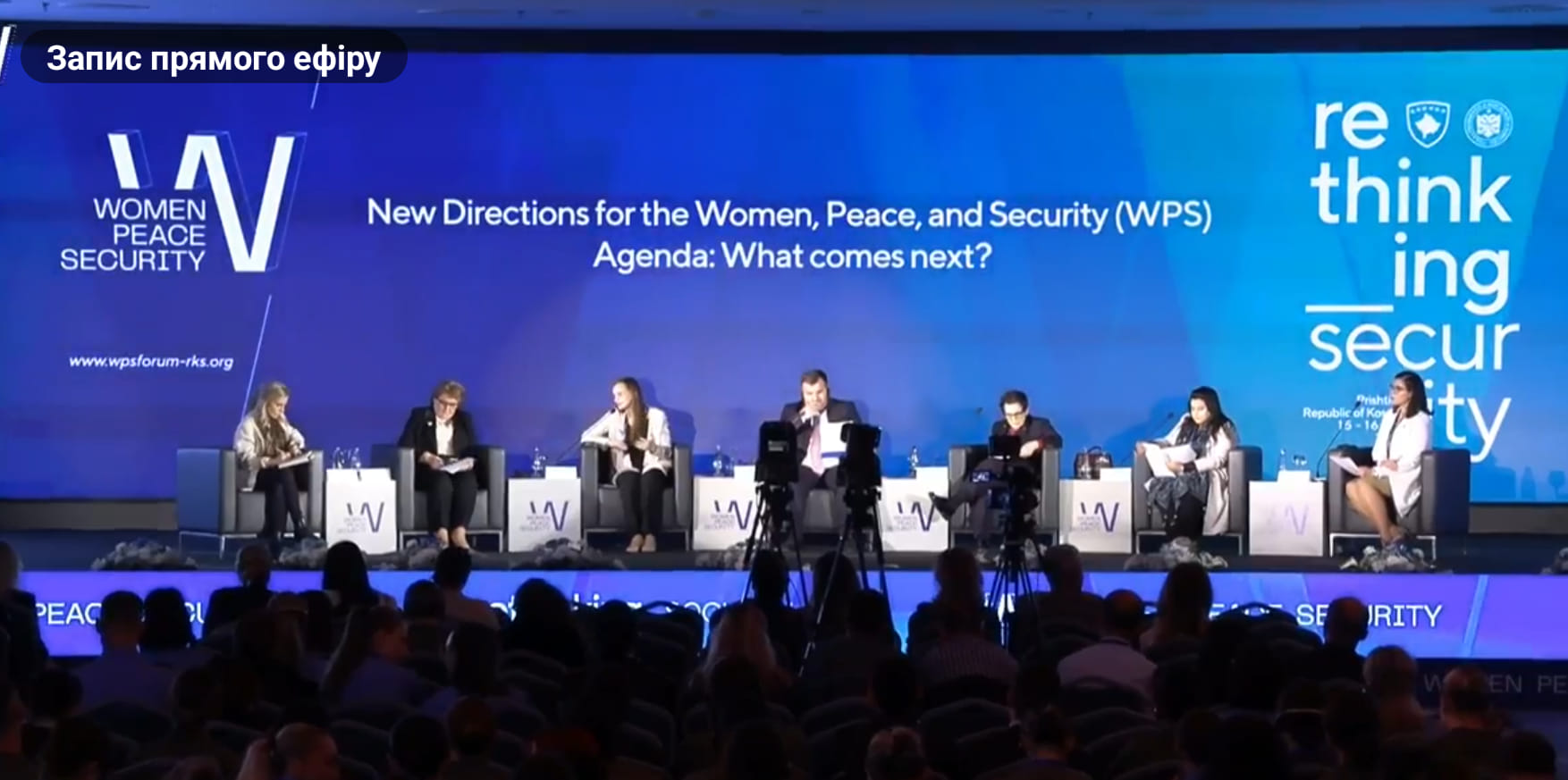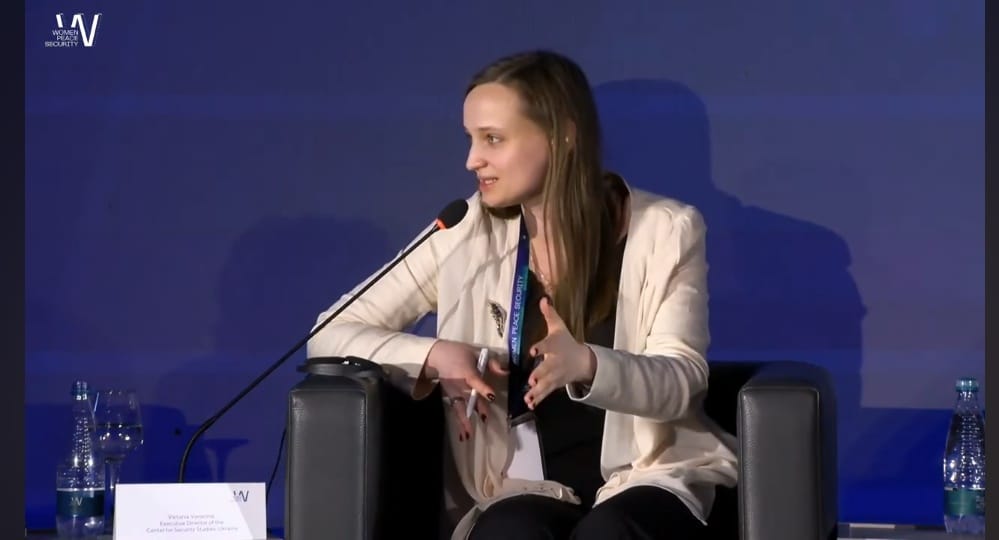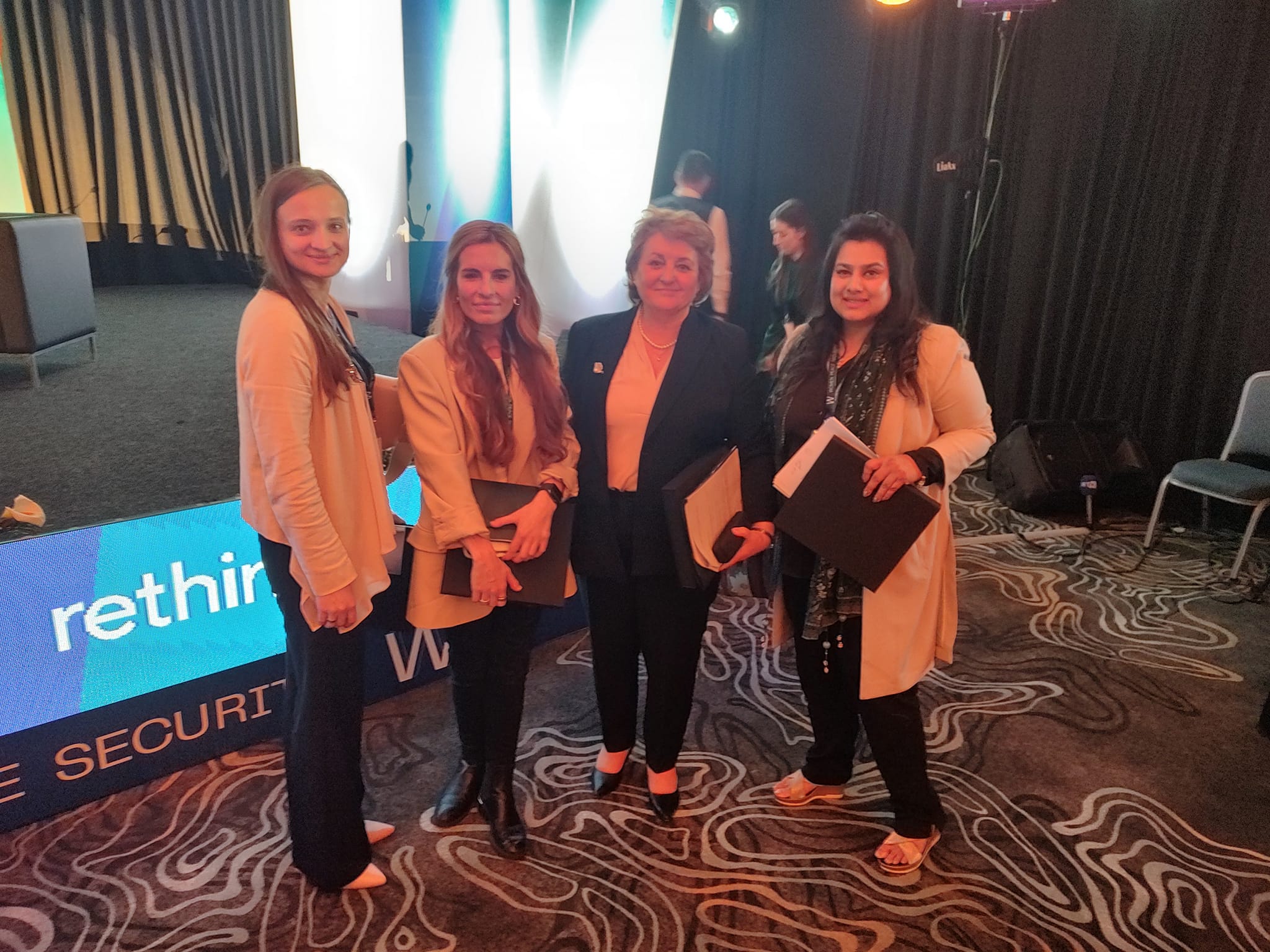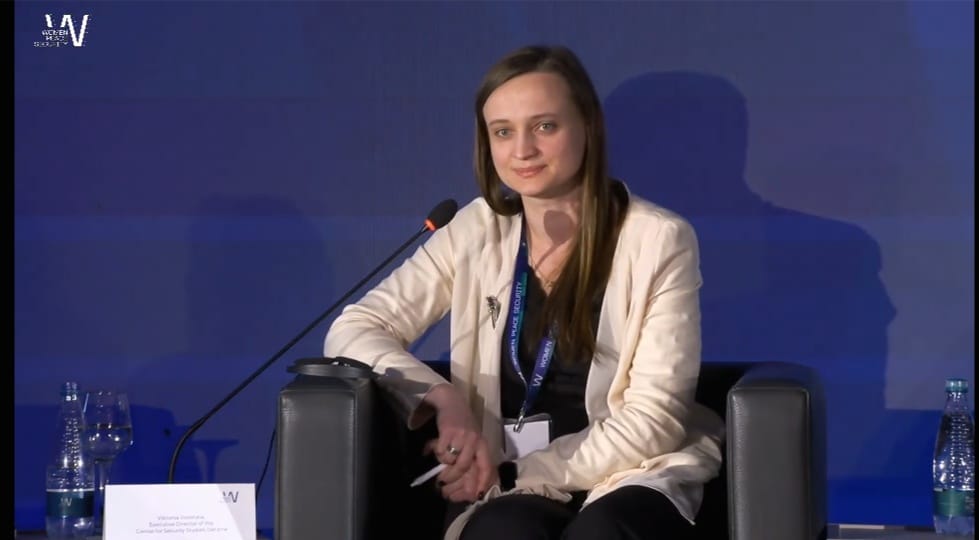Transitioning to the topic of the panel discussion, “New Directions for the Agenda of Women, Peace, and Security,” Victoriia Voronina focused on strategic issues regarding the role of women in the security field: The concept of “Women, Peace, and Security” and its resolutions, their drafts, or some recommendations essentially contain different information about human security, personal security, and the respective consequences of various contexts.
Ukraine does not have a post-conflict period, as mentioned in Resolution 1325. We are currently in an ongoing war, with varying situations and consequences for women. Some parts of our society claim that Ukraine is now in a period of female power (female strength), but this is not a very positive moment, as our men are in combat zones. Thus, during this period, our women are responsible for maintaining households, earning a living, supporting children, taking care of them, and more.
By the way, if we look at the statistics, there are about 120,000 women in Ukraine who are public servants. However, only 67 of them hold high-ranking positions. We have many women in law enforcement, with about 26,000 women in the National Police. Women are also present in the Armed Forces, with approximately 62,000 women, 4,000 of whom are currently in active combat zones.

At the same time, if we shift from counting positions to a strategic level approach, it is hard to imagine a woman taking part in strategic discussions on security issues in Ukraine. So, what is the role of women in this field?
Margaret Thatcher once said, “If you want something said, ask a man. If you want something done, ask a woman.” This division between “doers” and “thinkers,” where women are seen as “doers” and men as “thinkers,” is a perfect example of what is happening at the strategic level in the security sphere in Ukraine, and I believe, in the world at large.
I think we need to look beyond just positions and quotas, and focus on root causes. Perhaps there are stereotypes or even intentions, even among women themselves, that prevent them from reaching the strategic level. By the way, if we refer to Ukrainian statistics, boys and girls in school get the same grades/marks in natural sciences and mathematics. But if we look at universities, for example, only 22% of women choose fields in mathematics, technology, energy, etc. They are on equal footing in school, so what happens later? Maybe stereotypes play a role, or perhaps other factors are involved.
Therefore, let us explore these questions more deeply. It’s not only about working with outcomes and consequences, but also understanding the causes, and striving to involve more women in strategic studies. By the way, perhaps historically, strategic sciences stemmed from military studies rather than public administration. In public administration and governance, we have many women. So, this is a topic for discussion, let’s think about it more deeply.

Let us remind you that on April 15-16, the second international forum “Women, Peace, Security” was held in Pristina, Kosovo. The event brought together representatives from over 40 countries, including presidents, government officials, lawmakers, diplomats, law enforcement officers, judges, journalists, scholars, and civil society organizations.
The full recording of the panel discussion in English is available at the following link: https://www.facebook.com/share/v/vtpccQ4zM9DawaFL/?mibextid=qi2Omg.



